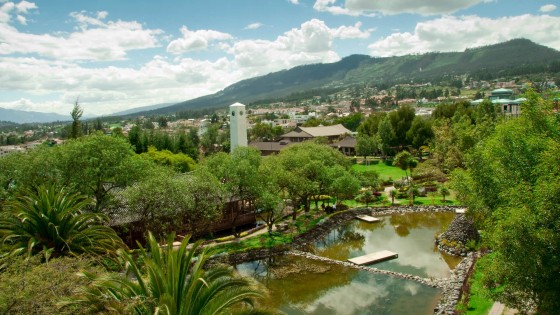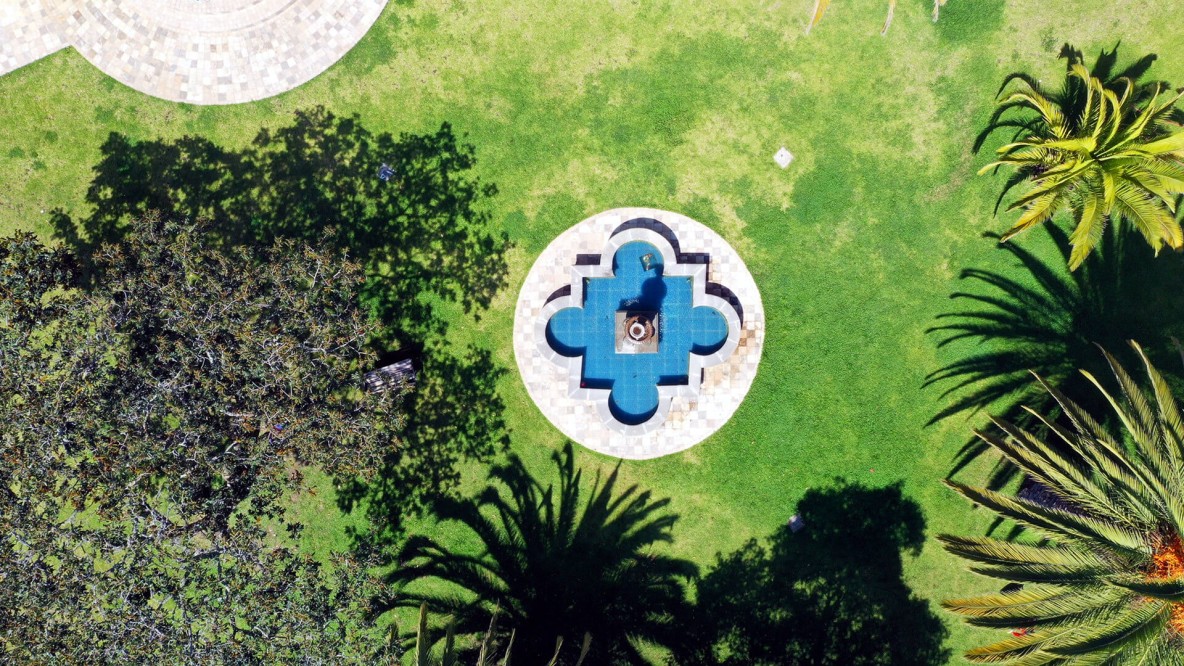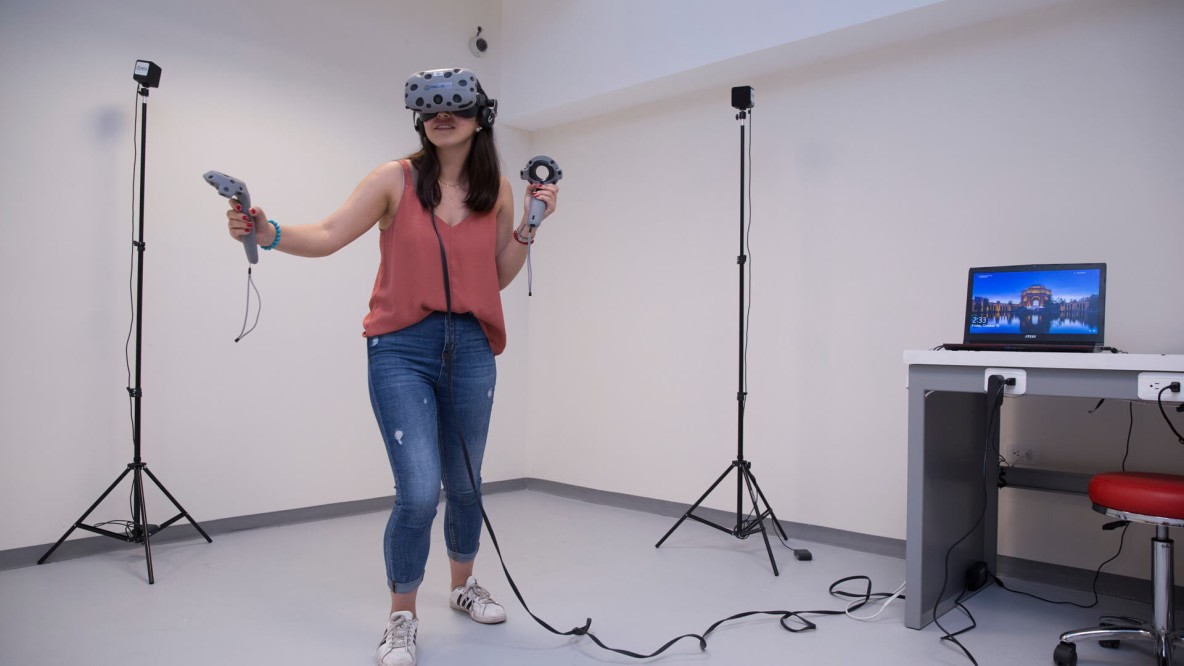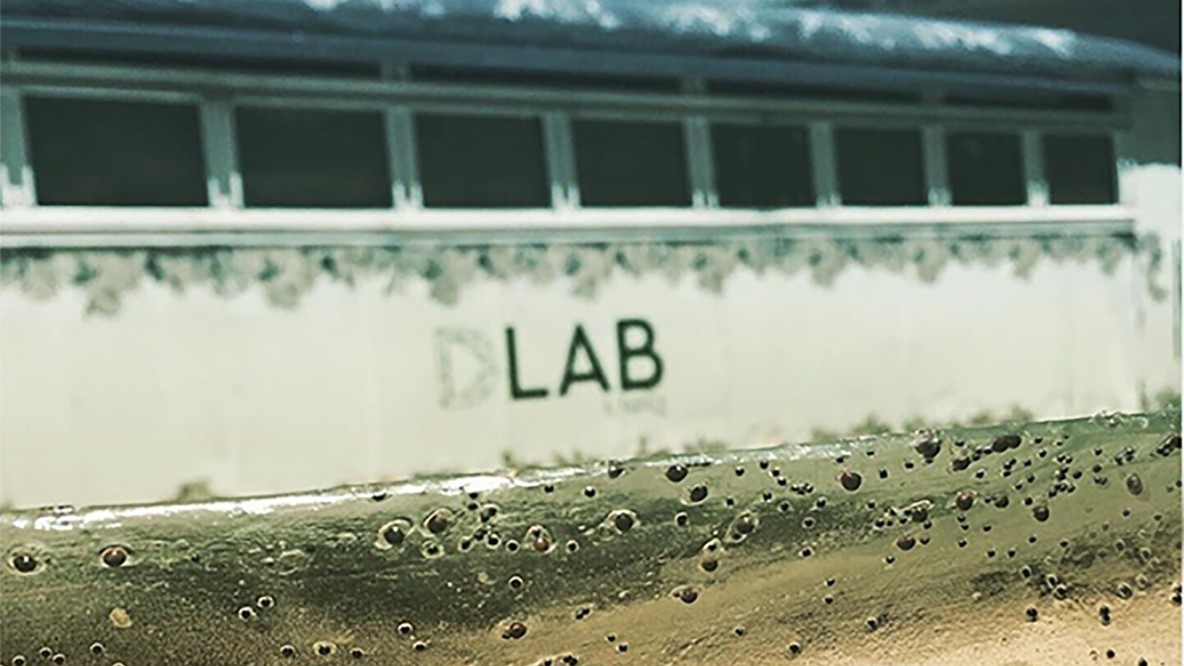Innovation and Sustainability Office (OIS)
The Office of Innovation and Sustainability is in charge of promoting joint work between the academy, public and private companies, and the internal and external community in terms of creating shared value in matters of innovation and sustainability. The Office of Innovation and Sustainability supports various programs and projects ranging from courses on sustainability to research and development projects on sustainable strategies, such as alternative energy, among others.
The Office of Innovation and Sustainability also performs consultancies through the Center for Technology Transfer and Development (CTT-USFQ), and has a team of experts with fourth-level degrees in sustainability and related areas. We have specialists in water quality and treatment, domestic and industrial effluent treatment, domestic and hazardous waste management, air quality, environmental management, environmental economics, environmental policy, climate change, biodiversity, among others.
The Office of Innovation and Sustainability was created in early 2014 in order to develop and promote sustainable strategies that allow the growth and development of the USFQ to be in harmony with society, the environment, and the economy. Currently, USFQ is characterized as a sustainable laboratory that fosters responsible behavior among young adults, who in the future will be the leaders of our communities.
The Office of Innovation and Sustainability seeks to create shared value, benefiting all the interest groups that interact with USFQ. Each interest group, such as students, teachers, workers and the external community, have their own concept of value. In general terms, the Office of Innovation and Sustainability seeks to improve the quality of life for each of these groups, focusing on their own needs and prioritizing those that cause the greatest impact.
In late 2012, USFQ began measuring the carbon footprint of the Cumbayá campus along with other indicators, both social and economic, to generate the first sustainability report. Since then, the Department of Environmental Engineering, the College of Administration, and various collaborators have been outlining strategies that seek to generate more efficient operations, thus making us a benchmark in sustainability issues in both Ecuador and Latin America.
Additionally, USFQ participated in the international pilot for Sustainability Tracking, Assessment & Rating System (STARS) of the Association for the Advancement of Sustainability in Higher Education (AASHE). Currently, the AASHE methodology is only applicable in universities in the United States and Canada, however, due to the growing interest of international higher education institutions in this subject, AASHE implemented this pilot program with 50 institutions around the world. USFQ is the first South American university that is participating in the program and, in December 2013, we were recognized by AASHE with the status of "STARS REPORTER". Currently we are part of the AASHE International Committee that seeks to expand this certification worldwide.
Mission
The mission of the Office of Innovation and Sustainability is to create shared value for both the USFQ and the external community, including all interested groups.
Vision
he vision of the Office of Innovation and Sustainability is to position the USFQ as a model university on issues of innovation and sustainability both in Ecuador and in Latin America.
Buscamos incorporar valor compartido en todas las esferas de nuestras operaciones. Trabajamos para promover un campus eficiente con operaciones que apoyen el desarrollo de nuestro USFQ Smart Campus...
La Oficina de Innovación y Sostenibilidad (OIS) busca generar valor en términos de innovación a sus grupos de interés sean estos, estudiantes, profesores, empresas, organizaciones entre otros. Para...
SOBRE NOSOTROS
El D.LAB USFQ es un laboratorio para la investigación y creación de proyectos transdisciplinarios. En el laboratorio, confluyen la academia y la empresa; formando un ecosistema de...




